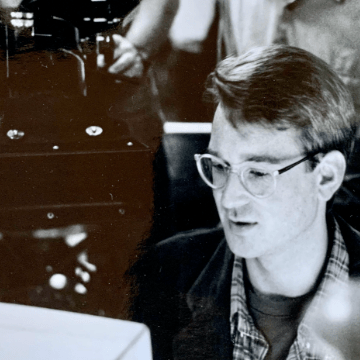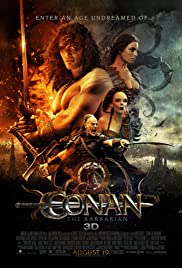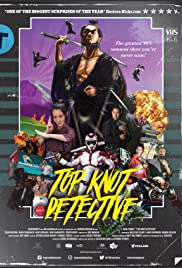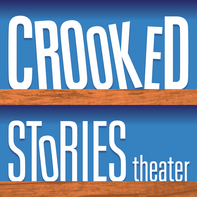WINDOW CREEP – by Rob Herzog
short, horror script
A nine-year old boy tries to outwit the visitor who scratches at his window screen in the middle of the night.
Are you afraid of the dark?
Since time immemorial most of us have felt that most primitive of fears – being afraid of things that we cannot see and of things that go bump in the night.
Remember being a kid? Most of us can recall waking in the middle of the night listening out for another creak of the floorboards, or startled by the groan of a wardrobe-door yawing open of its own accord. Covers pulled up and over our heads we would lie in wait, dreading the moment when something might pounce from the closet, or jump out from underneath the bed… Terrified that there was something evil lurking under the cover of darkness.
In Rob Herzog’s chilling horror, Window Creep, we meet Eddie, a plucky nine-year old kid who we sense is somewhat used to fending for himself. Amidst the backdrop of an ordinary pre-teen bedroom – posters of superheroes and monsters adorning the walls – Eddie’s enjoying his usual bedtime ritual. He’s up late, playing with his toy soldiers. The lights are out and the gleam of Eddie’s flashlight bounces off the walls, when all of a sudden –
– A breeze blows in from an open window…
The curtains sway slightly
There’s a tiny shift and — from out of nowhere —
Someone or something claws Eddie’s window screen.
Fingernails drag slowly across metal: Zip. Ping. Scrape.
Something’s trying to get through…
At this point Eddie’s going to do what every petrified kid will do under the circumstances, and that is scream and call out for his Mom.
But it’s also at this point that writer, Rob Herzog cleverly ramps up the tension and suspense even more than before, because…
EDDIE
Mama…?
Mama’s not answering. In the bedroom down the hall it appears she’s out cold which means Eddie is now all alone and at the mercy of whatever this Creep is and whatever it wants.
So, what does Eddie do next? Well, there’s one trick in Eddie’s arsenal and it’s the same ploy he uses with his toy soldiers when they’re not behaving. He attempts to hypnotize it in the hope that –
EDDIE
… On the count of three, I will
control your mind and you’ll go
away.
But… toys are just toys and Eddie’s about to learn that whatever this Creep is, it’s very real, it’s very evil, and it won’t be fooled by childish games.
The Creep’s hand tears through the screen.
He hooks Eddie’s shirt with one grubby, long finger –
And then…
Well, I can’t spoil the fun and the scares can I?
Suffice to say you will not guess the sting in the tail of this cleverly written part monster, part parable tale following in the tradition of such horror gems as Lights Out, Bedfellows, The Babadook, and Don’t Breathe.
Rob Herzog’s Window Creep might well be the stuff of nightmares, but for you filmmakers out there it could be the perfect calling-card for your dreams.
But don’t go hiding under the bed. Better burst out and into the light. The only thing scarier than not getting your claws into this one would be missing out on it altogether. And you really don’t want that… lest the lost opportunity haunt you for the rest of your life.
BUDGET: Low. Self-contained one location, one plucky kid, one Mom, one Creep’s hand with some light SFX.
ABOUT THE WRITER: Rob Herzog is a Chicago screenwriter. He has sold two short scripts and won prize money in two small screenwriting contests. His short horror script Creak and Shriek was produced in 2019 by Mad Dreamer Entertainment and can be viewed on various platforms like Amazon Prime, YouTube and Vimeo. He has a master’s degree in English composition from Northeastern Illinois University. Rob can be reached at: robherzogr (a) hotmail.
About the Reviewer: L.Chambers has been writing all her life – especially in her head, and on scraps of paper. It’s only in the last few years she began to get serious about screen-writing. Prior to this she worked in the Features Department for ABC TV as a Program Assistant, and trained as a FAD. She currently works as a freelance web-content editor and lives with her husband (also a screenwriter) in Sydney, Australia. L. Chambers can be reached at: libbych (a) hotmail.
Read WINDOW CREEP (short, horror script)
Discuss this script on the discussion board
*This screenplay may not be used or reproduced for any purpose including educational purposes without the expressed written permission of the author.
Find more scripts available for production.
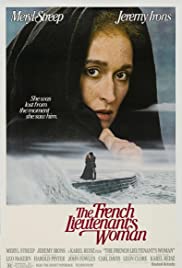
![]() The French Lieutant’s Woman – November 3, 1979 unspecified draft script by Harold Pinter (based on the novel by John Fowles) – hosted by: UCLA Extension Writers’ Program – in pdf format
The French Lieutant’s Woman – November 3, 1979 unspecified draft script by Harold Pinter (based on the novel by John Fowles) – hosted by: UCLA Extension Writers’ Program – in pdf format
